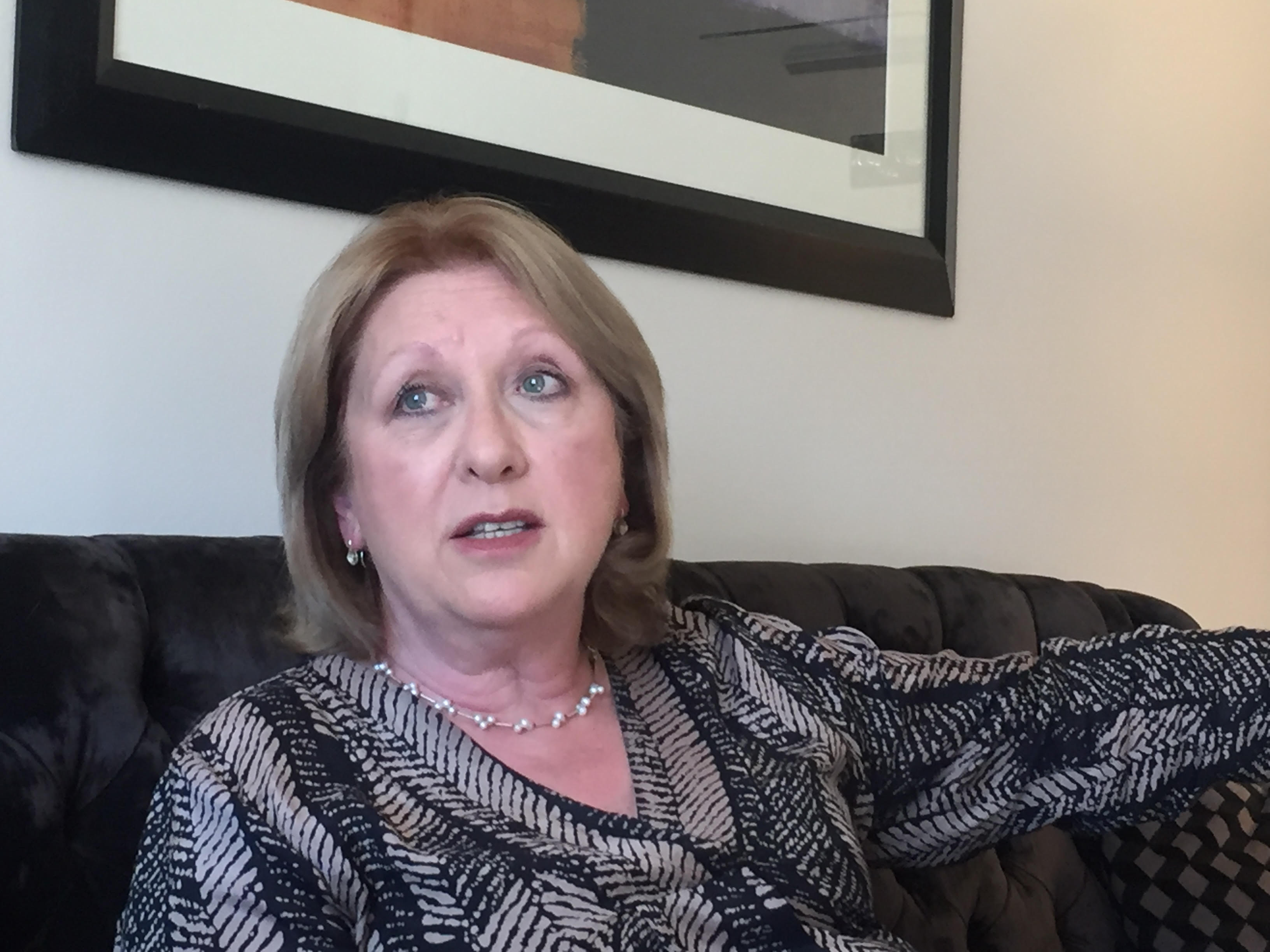Catholic Church like a plane with metal fatigue that needs to fixed, says Mary McAleese

Mary McAleese pictured in London
Photo:Ruth Gledhill/The Tablet
Photo:Ruth Gledhill/The Tablet
'The Church needs to be looked at very intently to identify what parts need to be replaced'
The Catholic Church is like a plane with metal fatigue that needs to
be grounded and fixed if it is to continue delivering its passengers
safely, according to one of its most indefatigable critics, the former
Irish president Mary McAleese.“It’s been flying long hours and delivering people safely and doing a good job, but now there are a million little cracks that have not been observed and have not been tackled or addressed, and it wouldn’t take an awful lot to throw a spanner in the works and for it to fall out of the sky,” she warned. “The Church needs to be looked at very intently to identify what parts need to be replaced.”
The overriding problem with the Church, said McAleese during a visit to London, was that it operated as an empire, in an age when that model of governance was long since outdated. At the centre was a small all-male cohort who acted as “legislators and judges and juries” as well as being “purveyors of doctrine”. The main problem was a structure in which the men at the top spoke down to the people at the bottom - but that way of communicating was becoming increasingly problematic for Catholic Church leaders because the people at the bottom had found their voices and were speaking up, and cardinals and bishops were not able to control that - as in the recent abortion referendum in her own country, Ireland.
McAleese, who was Ireland’s president from 1997-2011 and who has since studied canon law in Rome, spoke about the opportunity for reform that seemed to dawn at Vatican II in the early 1960s. “The bishops gathered had some really good ideas and generated new thinking, but they left no structure to carry through the desire of the council and all 2000 bishops disappeared back and the gravitational pull of the old way of doing things continued,” she said.
Pope Francis himself was “puzzling...he
says one thing one day and a contrary thing another day”. But what she
liked about him was that he encouraged debate within the church, he
wasn’t afraid of divergence. “He’s an argumentative Pope and he likes
you to argue back” - and that made him very different from either of his
immediate predecessors, Benedict XVI or John Paul II.
On women, though, she said Francis’s track record was “poor”; he had
promoted a handful of women so there was slightly more visibility, but
given them no more voice. Women’s ordination had ceased to be the
relevant question, she said, although the theology on why that wasn’t
possible was “thin”. The main issue, she said, was how the Church could
hope to represent women and their views when they were effectively
disenfranchised. “Tell me how do you propose to allow the 600 million
women who are members of the Church to make a significant contribution
to doctrine, to the interpretation of doctrine, to dogma, to Church
teaching, given that they can’t do it the conventional way,” she said.
The report of the commission looking into women deacons had not
materialised; McAleese said she had heard it had been produced but had
been sent back for further work - but people had a right to know what
was happening with it. “Why are we not told, why are we not up to date,
why are we kept on hold?” she said.McAleese said she was saddened by the fact that the Church often seemed to be a champion of change in the early stages of a process, only to go silent or row back further down the line. “The Church was a champion of the human rights of children and it seems to me that what’s happened is that somehow over the last 25 years there has been a real failure to honour the promises to the rights of the child and to follow through on the Universal Declaration of Human Rights,” she said.
But despite all this, and the scandals that have been at the forefront of the Catholic Church’s recent history in her own country, McAleese said she remained committed to the Church, which had huge global influence. In the future, she hoped it would galvanise itself to be an agent of real change, change that would improve the lives of people like young women and gay people. “The Catholic Church can become an enormous power, a surging power, a tsunami of good in the world and would have across five continents a fantastic influence that could open up new feelings of grace,” she said. What it needed first, though, was a period of self-reflection and self-criticism, qualities it had not prioritised for a long time.

No comments:
Post a Comment